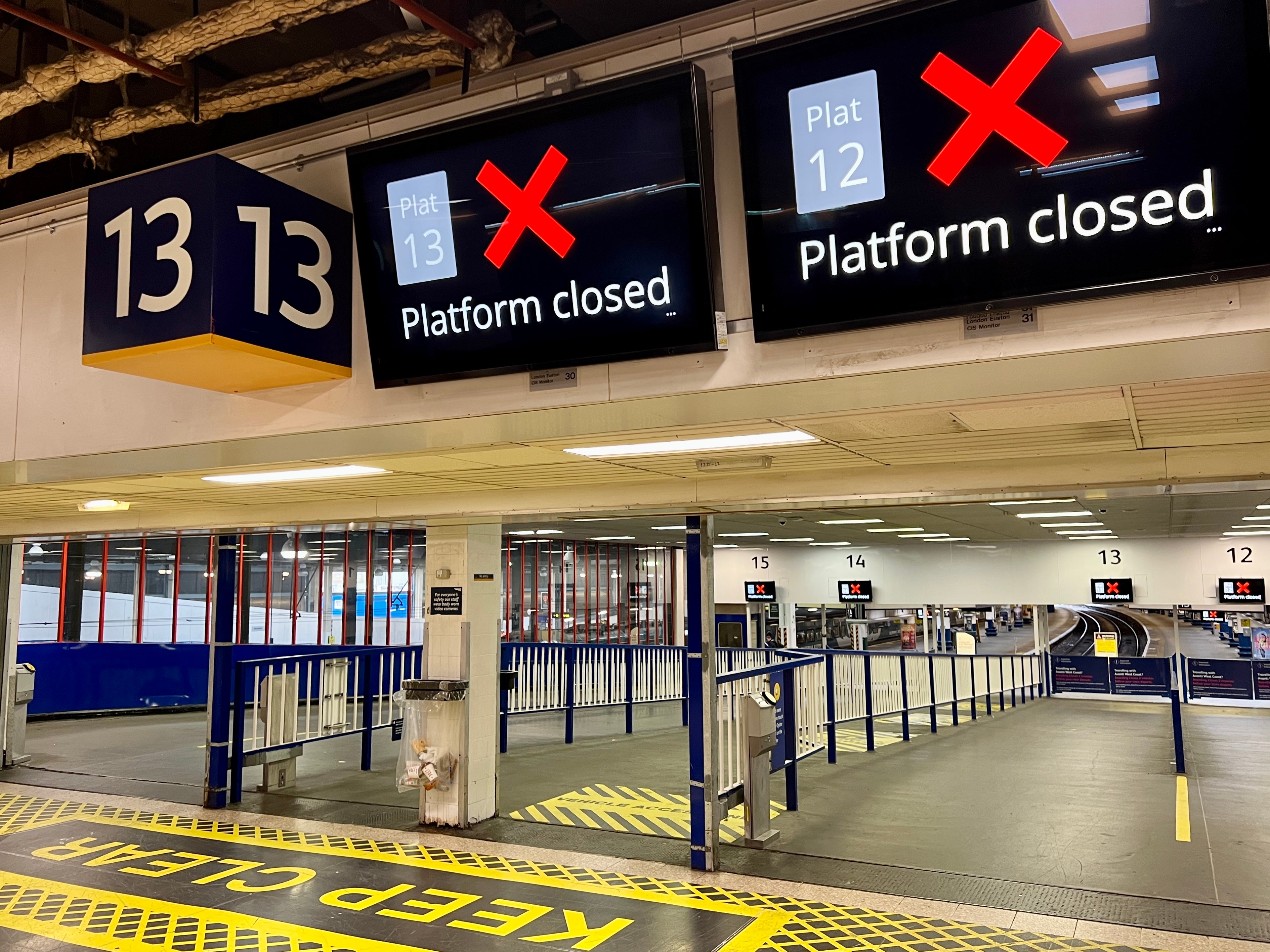10 worst stations for train cancellations in UK revealed
Three per cent of all trains in Great Britain were cancelled in just seven months this year
Your support helps us to tell the story
From reproductive rights to climate change to Big Tech, The Independent is on the ground when the story is developing. Whether it's investigating the financials of Elon Musk's pro-Trump PAC or producing our latest documentary, 'The A Word', which shines a light on the American women fighting for reproductive rights, we know how important it is to parse out the facts from the messaging.
At such a critical moment in US history, we need reporters on the ground. Your donation allows us to keep sending journalists to speak to both sides of the story.
The Independent is trusted by Americans across the entire political spectrum. And unlike many other quality news outlets, we choose not to lock Americans out of our reporting and analysis with paywalls. We believe quality journalism should be available to everyone, paid for by those who can afford it.
Your support makes all the difference.The British train stations with the worst cancellation rates have been revealed, including at least three stations in Manchester.
New data shows that services at some of the UK’s busiest stations were hit by a large number of cancellations and 10-minute delays between 1 January and 31 July 2023.
Huddersfield station, in West Yorkshire, had the highest rate of cancellations at 13 per cent, followed by Manchester Victoria station at 10 per cent, according to rail performance-tracking website On Time Trains.
While the number of trains cancelled at stations such as Cardiff Central or London Bridge was higher in absolute terms (8,322 and 7.808 respectively), passenger disruption was comparatively lower because they operate more services.
Based on this analysis, here is a list of the top 10 worst stations for train cancellations in the UK:
1. Huddersfield, West Yorkshire: 13 per cent of trains cancelled
2. Manchester Victoria, Manchester: 10 per cent
3. York: Nine per cent
4. Newcastle: Nine per cent
5. Manchester Oxford Road, Manchester: Nine per cent
6. Preston: Seven per cent
7. Cardiff Central, Cardiff: Seven per cent
8. Liverpool Lime Street, Liverpool: Seven per cent
9. Manchester Piccadilly, Greater Manchester: Seven per cent
10. Willesden Junction, London: Seven per cent
Chris Jackson, the interim managing director of TransPennine Express (TPE), which took control of Huddersfield station, told the BBC “we have seen improvements in performance and have made real progress in rebuilding union relationships on a local level” since it was nationalised in May.
On Time Trains’ data also revealed which of the stations with the most number of passengers had the highest rate of 10-minute delays.
Around 10 per cent of scheduled trains at Bath Spa, Milton Keynes, and Crewe were delayed by 10 minutes or more.
Reliability of services across Britain has been affected by a series of issues, including infrastructure failures and strikes by staff.
There was widespread disruption on Saturday due to a walkout by members of the Rail, Maritime and Transport union (RMT) at 14 train operating companies and drivers in the Aslef union refusing to work overtime shifts.

A Department for Transport spokeswoman said: “Ministers have been clear with operators they need to deliver punctual services, keeping delays to a minimum.
“To help make our railways more reliable, it’s crucial unions agree to reforms that will modernise the industry.”
BBC analysis of data for all 2,555 stations in showed that three per cent of all trains in Great Britain were cancelled between January and July this year.
Additional reporting by agencies



Join our commenting forum
Join thought-provoking conversations, follow other Independent readers and see their replies
Comments